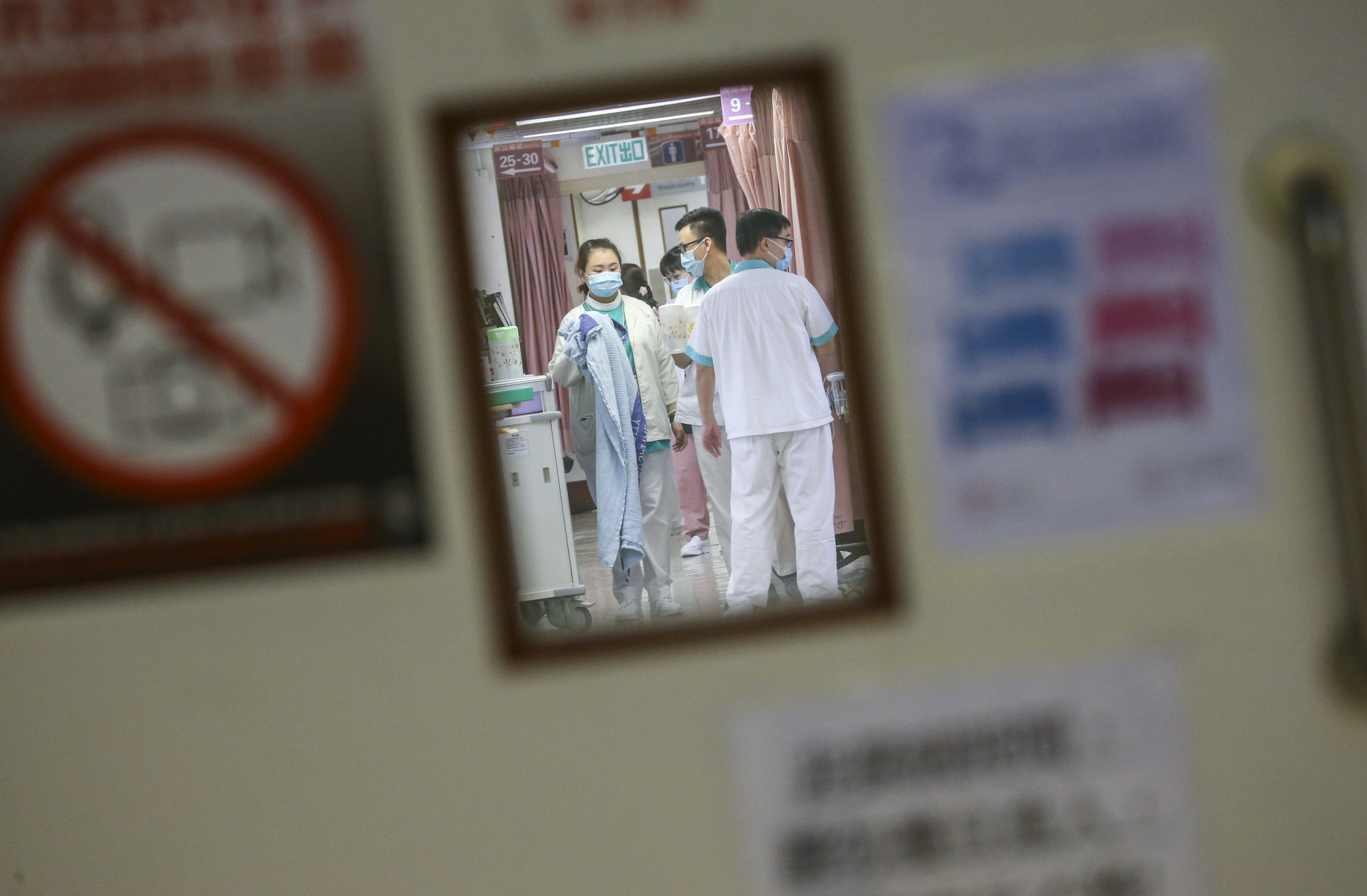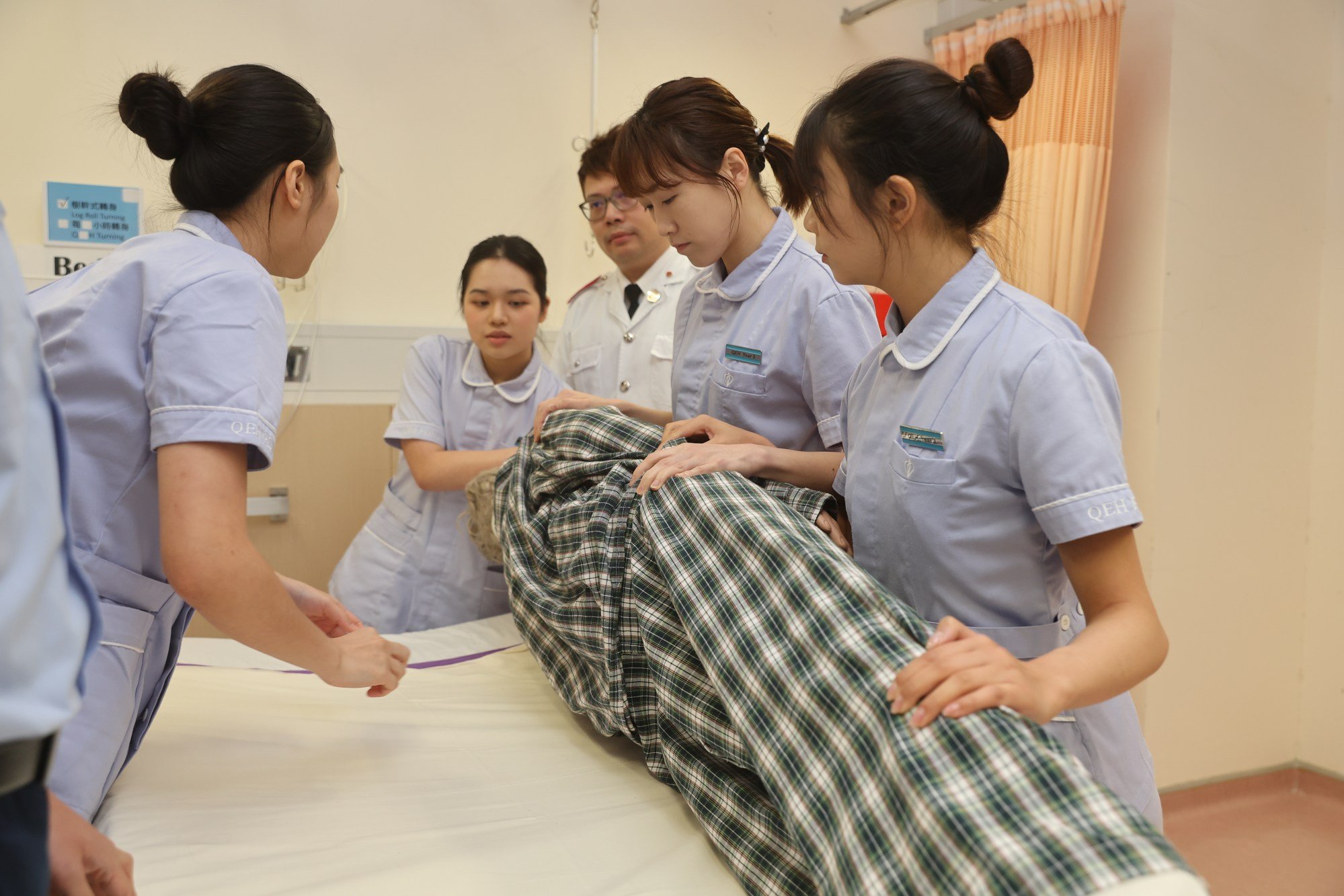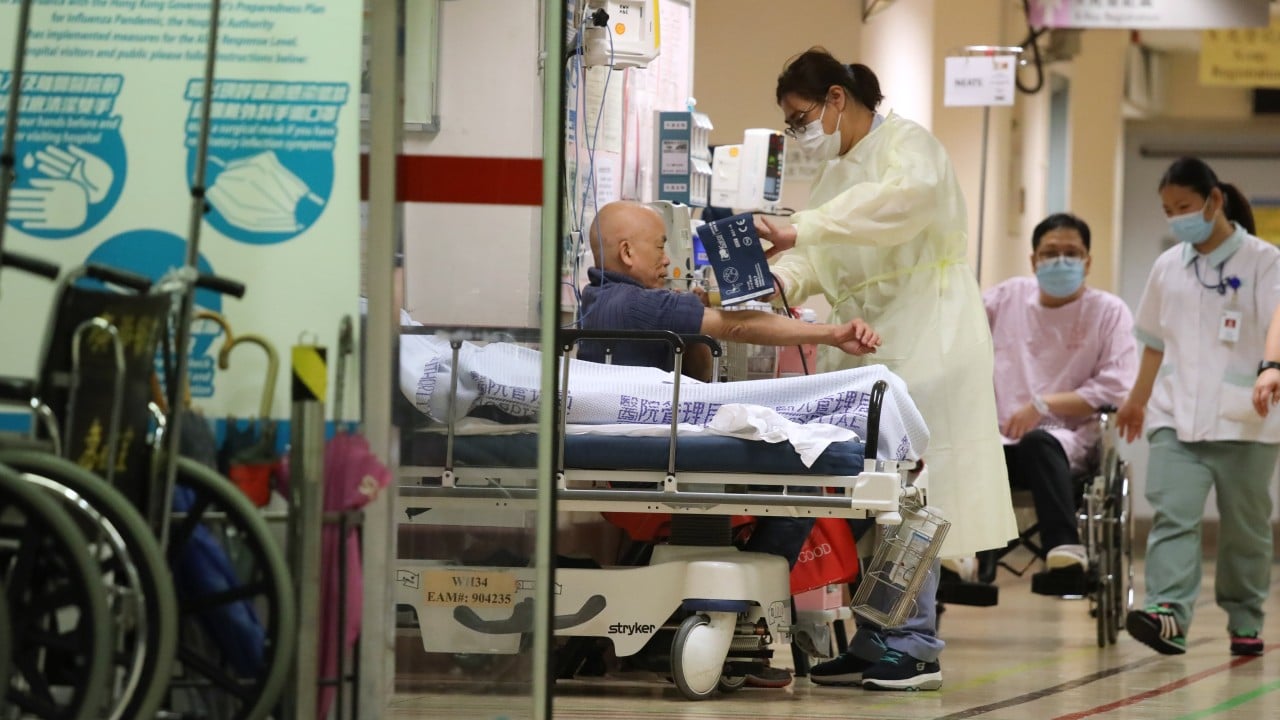Hong Kong has passed legislation to allow non-locally trained nurses with certain full-time experience to work in the city without having to pass a licensing exam in a bid to alleviate acute manpower shortages in the public health sector.
But in approving the law, legislators on Wednesday also addressed concerns over the quality of the nurses, potential language barriers and the policy’s effectiveness in solving the staffing crunch.
Secretary for Health Lo Chung-mau said Hong Kong’s demand for medical services would only increase as the population greyed.
“Adequate medical manpower is crucial to maintaining the quality of medical services,” he said before the Nurses Registration (Amendment) Bill 2023 was passed by the Legislative Council.
Lo said that even after increasing the number of places for registered and enrolled nurses from about 2,900 in 2017-18 to nearly 4,500 in 2023-24, the manpower shortage would remain critical in the short and mid term.
“By amending the Nurses Registration Ordinance, we have no intention of changing the role of locally trained medical professionals as a backbone of the city’s medical system,” he said.
“Introducing non-locally trained nurses is a short-term measure to cope with the current manpower shortage of local nurses, ensuring the service quality of the medical sector and that care homes will not be affected by the shortage.”
According to a projection made last year, the city will be short of 8,700 nurses by 2030, 6,900 by 2035 and 6,000 by 2040.
Under the new measure, non-locally trained nurses, who do not have to be permanent residents, can practise through one of three pathways.
The first allows candidates with at least one year of full-time clinical experience to work through a limited registration or enrolment scheme under which they can be employed at care homes and in “specified settings” under the Department of Health and Hospital Authority.
The Nursing Council can impose conditions on their practise based on their experience.

The second admits nurses with at least three years of full-time clinical experience through a special registration or enrolment scheme to work at public clinics and hospitals. There are no restrictions on their practice area.
Only those who enter through the special registration or enrolment scheme will be eligible for full registration or enrolment after gaining at least five years of experience in Hong Kong and being assessed by council as having performed “satisfactorily and competently”.
The third route enables nurses from other jurisdictions to conduct academic exchanges or clinical demonstrations in Hong Kong for up to 14 days through a temporary registration or enrolment scheme.
The policy also requires all nurses under full, limited and special registration to complete mandatory continuing nursing education as a prerequisite for renewing their practising certificates.
The requirement will also apply to nurses under special registration who have at least five years of employment and are seeking full registration.
Lo said the council could specify the assessment methods and arrangement for the employing institutions and would issue standards and guidelines on the assessments soon.
He also emphasised that after the bill was passed, authorities would prioritise the hiring of locally trained nurses and ask other specified institutions to do the same.

The Hospital Authority said it welcomed the passage of the bill.
“The [authority] is planning to visit various countries and regions, including Singapore this month and Malaysia in August, to promote this new policy and introduce development opportunities in our public hospitals in order to attract eligible non-locally trained nurses to practice in Hong Kong,” its spokesman said.
Medical and health services sector lawmaker Dr David Lam Tzit-yuen supported the bill but expressed concerns over the quality of non-locally trained nurses.
“I am slightly worried that non-locally trained nurses may not be familiar with Hong Kong’s communication customs and whether care homes have enough senior nurses to provide adequate training and supervision,” he said.
Lam suggested public clinics, hospitals and district health centres provide training or hiring services for smaller-scale care homes.
Some lawmakers also doubted whether the measure was a “cure-all” for the shortage, urging the government to continue efforts to retain locally trained nurses in the public sector, such as by improving their working conditions and increasing their training capacity.
While supporting the bill, lawmaker Peter Douglas Koon Ho-ming raised concerns that non-locally trained nurses might not be able to communicate with patients in Cantonese or write patient chart boards in English.
Lawmaker Chow Man-kong also urged authorities to ensure stringent gatekeeping on the academic qualifications, clinical experience and work aspirations of each applicant.


